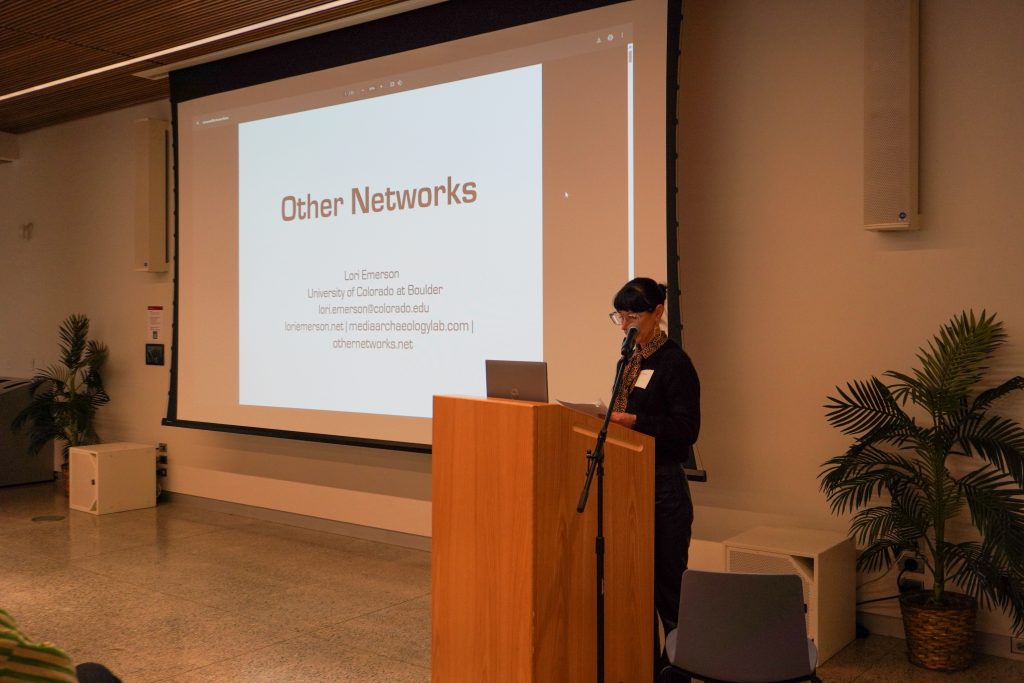
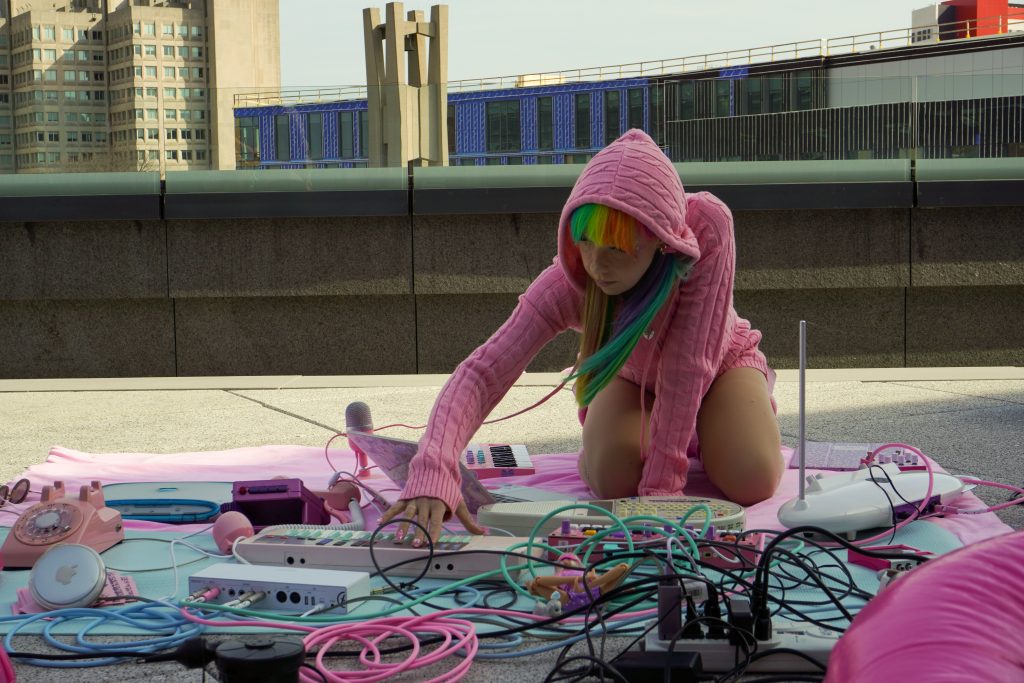
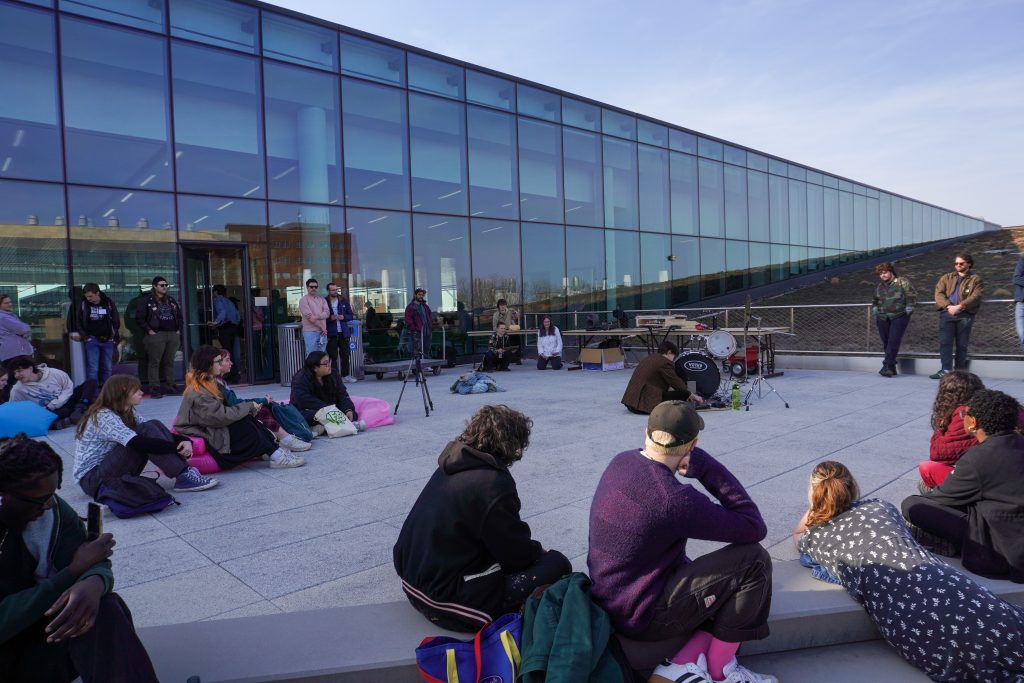
Event Information:
The 2025 Electronics Faire took place on March 13th and 14th at the Charles Library and Huddle Gallery in Philadelphia, PA. Paper presentations have been recorded and are available on the library’s website.


Electronics Faire Schedule:
Thursday March 13th, 2025
Morning Workshops
- Bareëmins with Sofy Yuditskaya, Meg Schedel, and Jess Rowland 9:30 AM – 12:30 PM (Makerspace) Register on the Library’s Website
- HTML Journal with Paloma Kop 10:30 AM – 12:00 PM (Innovation Studio) Register on the Library’s Website
Lunch 12:00-1:00 PM (lunch provided) Main Area of the LCDSS, Third Floor
Afternoon Workshops
- Sound Writing with Pooja Chopra, 12:30 – 2:00 PM (Innovation Studio) Register on the Library’s Website
- The Vape Synth with David Rios, Kari Love, and Shuang Cai 1:30 – 4:30 PM (Makerspace) Register on the Library’s Website
- NFC Tag workshop with Richard Green 2:30 – 4:00 PM (Innovation Studio) Register on the Library’s Website
Coffee/Tea Break 2:00 – 2:30 PM (coffee, tea, and soda provided) Main Area of the LCDSS, Third Floor
Evening Art Reception
Low Tech Exhibition Opening Reception 6:00 – 8:00 PM, Huddle215 at 338 Brown St.
Friday March 14th, 2025
Coffee Hour 9:00 – 10:00 (coffee and tea provided), Main Area of the LCDSS, Third Floor
Sit and Tinker Faire 10:30 AM – 4:30 PM, Main Area of the LCDSS, Third Floor
Gateway Electronics, Jungle Network Zine, WKDU, Philly Community Wireless, Low Pass, Iffy Books, South Philly Typewriter, Bareëmins
Morning Workshops
- Tiny Handmade Speakers with Lily Crandall 10:00 AM – 11:30 AM (Makerspace) Register on the Library’s Website
- Shadow Puppetry with an Overhead Projector with Madeline Shuron 9:30 – 11:00 AM (VR Lab) Register on the Library’s Website
- Programming a BASIC Game with Lee Tusman 11:00 AM – 12:30 PM (Innovation Studio) Register on the Library’s Website
- Introduction to Cheap Video Synthesis with Andrei Jay 11:00 AM – 12:30 PM (Fourth Floor Event Space 401) Register on the Library’s Website
Lunch 12:00 – 1:00 PM (lunch provided), Main Area of the LCDSS, Third Floor
Lecture Series 1:00 – 2:00 PM First Floor Event Space
- Will Hallett, Godzilla vs Voltron: A Theoretical Overview of Low Tech Aesthetics
- Jacob Weinberg, Encountering Entropy, Low and High
- Lily Crandall, Archiving Family Memories through Interactive Textiles
- John Petitt, A/V Archiving at the SCRC
Keynote Lori Emerson: 2:15 – 3:15 PM First Floor Event Space
Coffee + Tea Break 3:15 – 3:30 PM (coffee, tea, and snacks provided), First Floor Event Space
Low-db performances
3:30 – 5:30 PM, Fourth Floor Event Space (401) + Fourth Floor Outdoor Roof Terrace (weather permitting)
- David Rios
- Gregory Kramer
- Gwyneththth
- Francesca Lally
- Elias Jarzombek
- G Santucci
- Octavio Figueroa
- i <3 files (Clara Venice & Zsofi Valyi-Nagy)
Photos from the walkthrough Faire and workshops
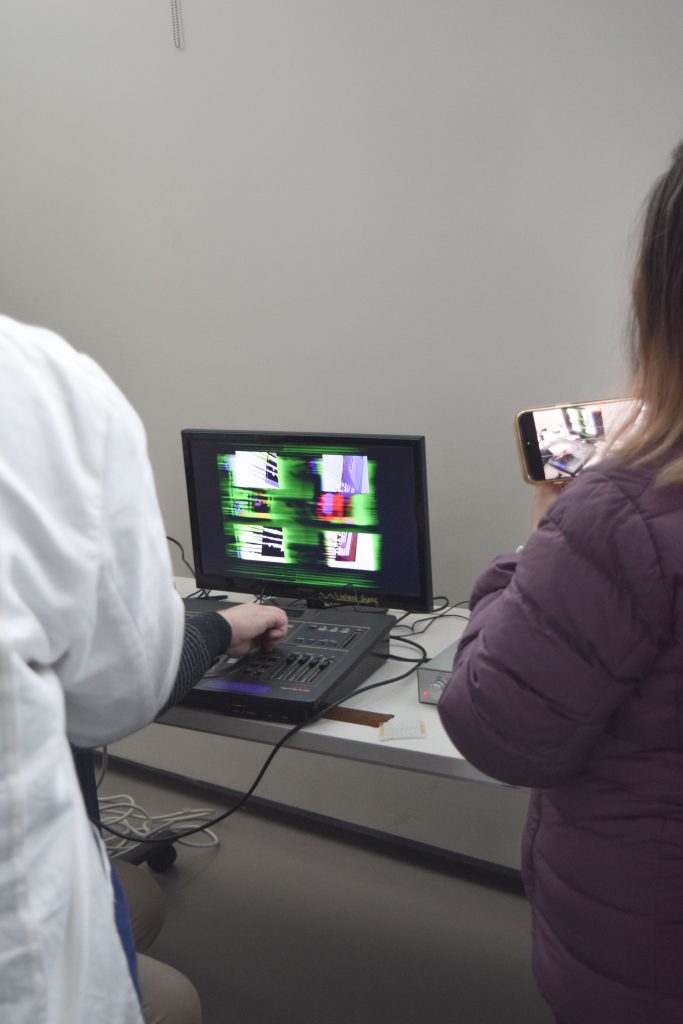
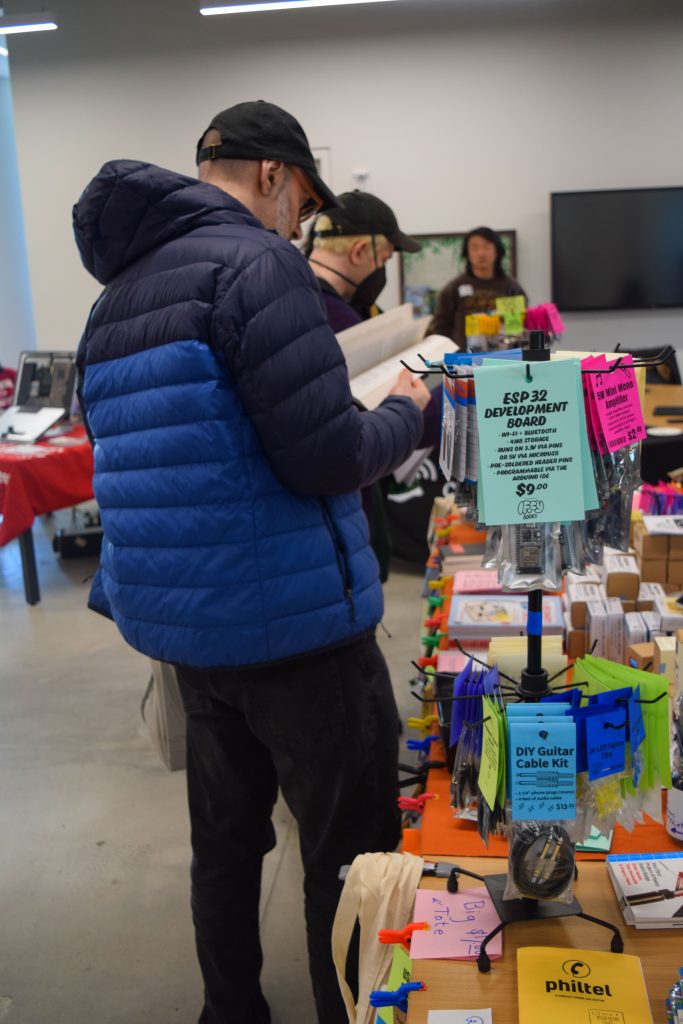
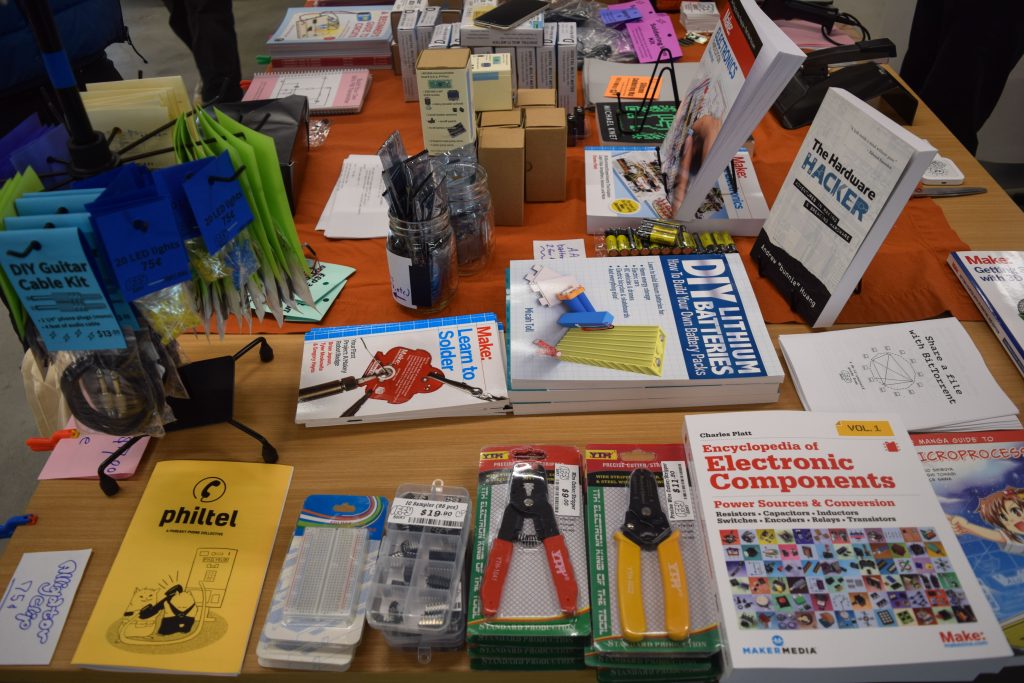
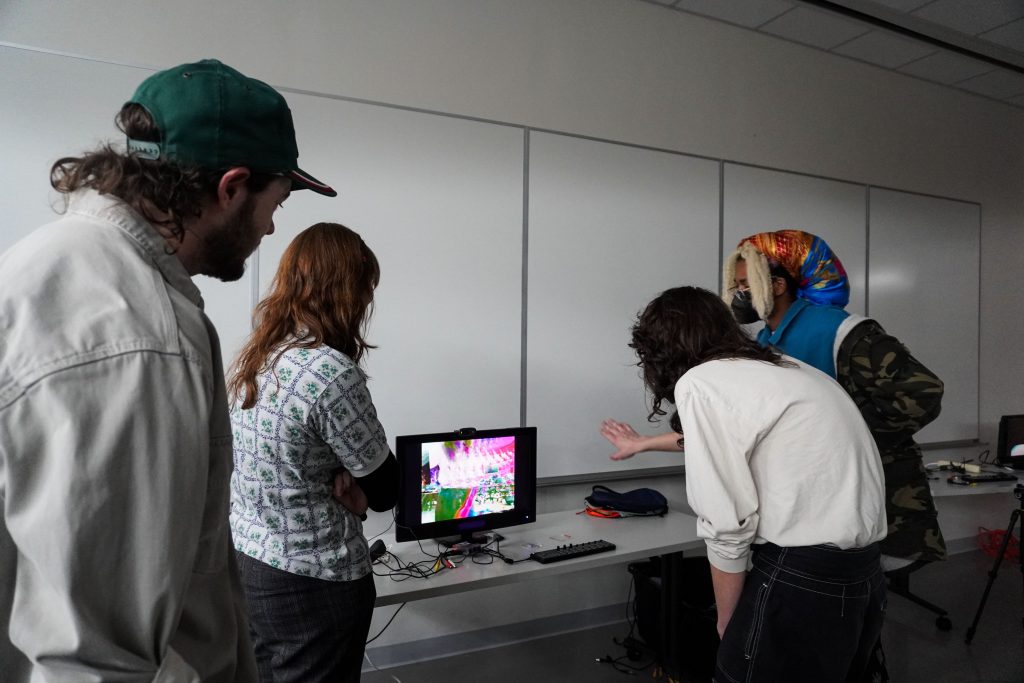
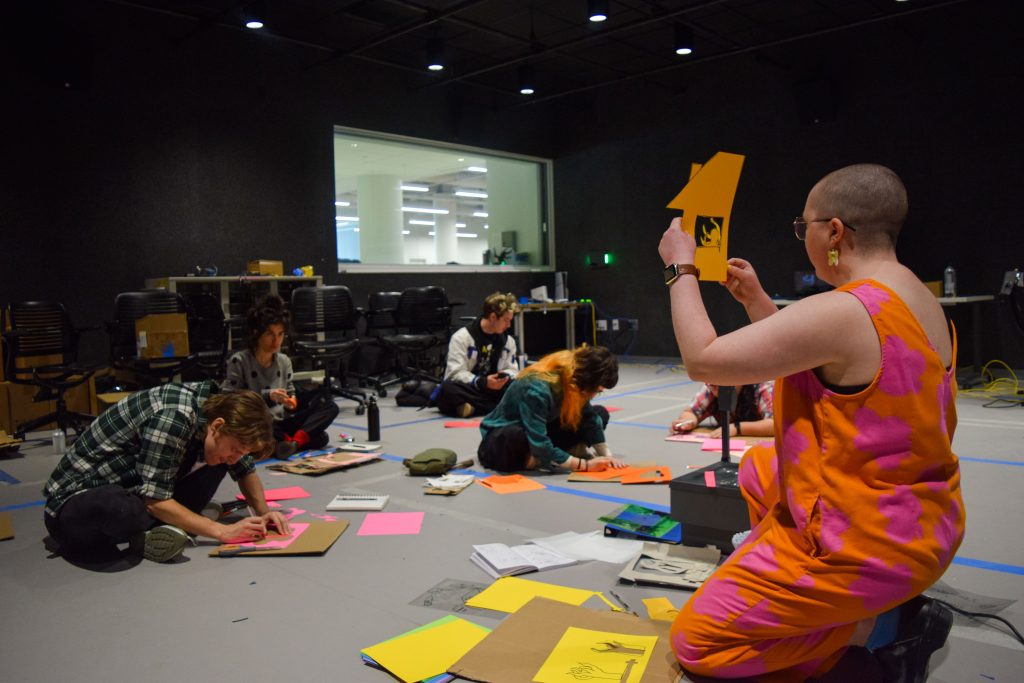
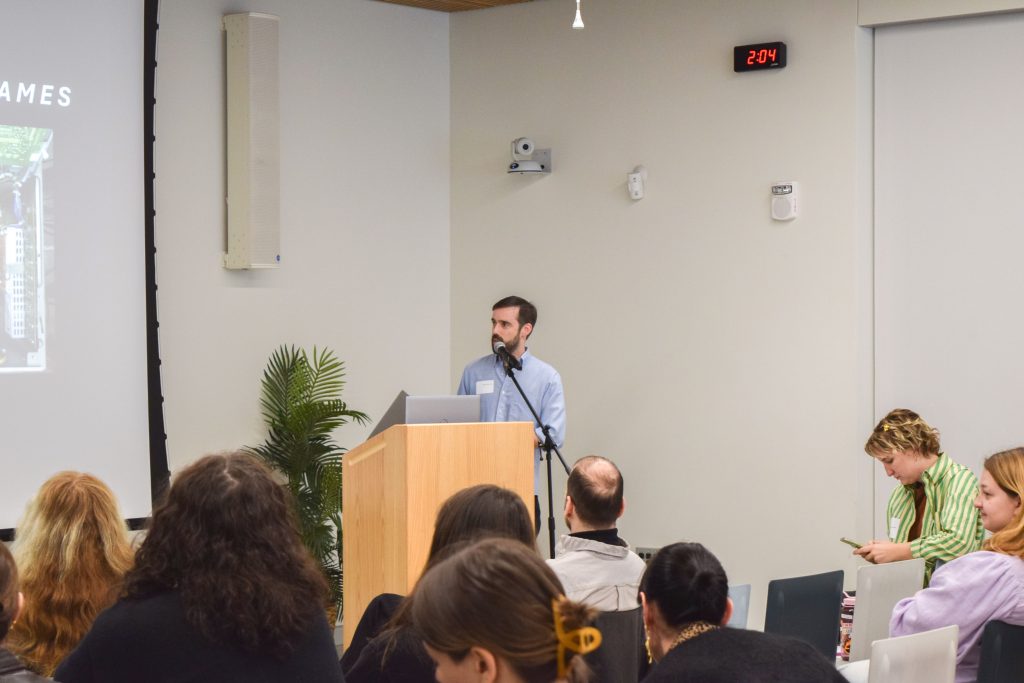
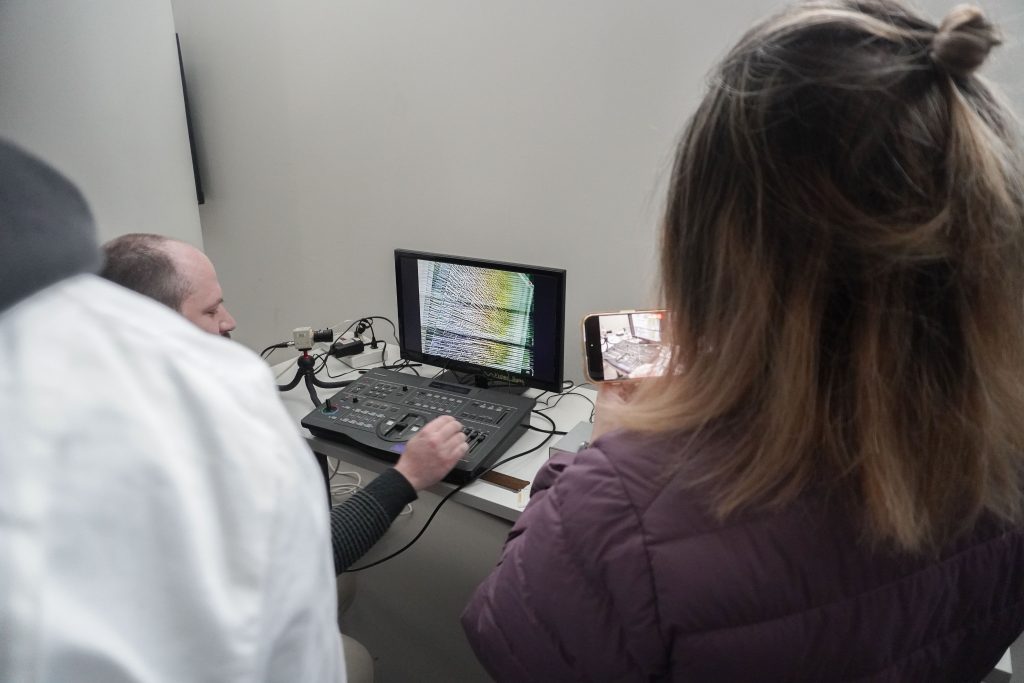
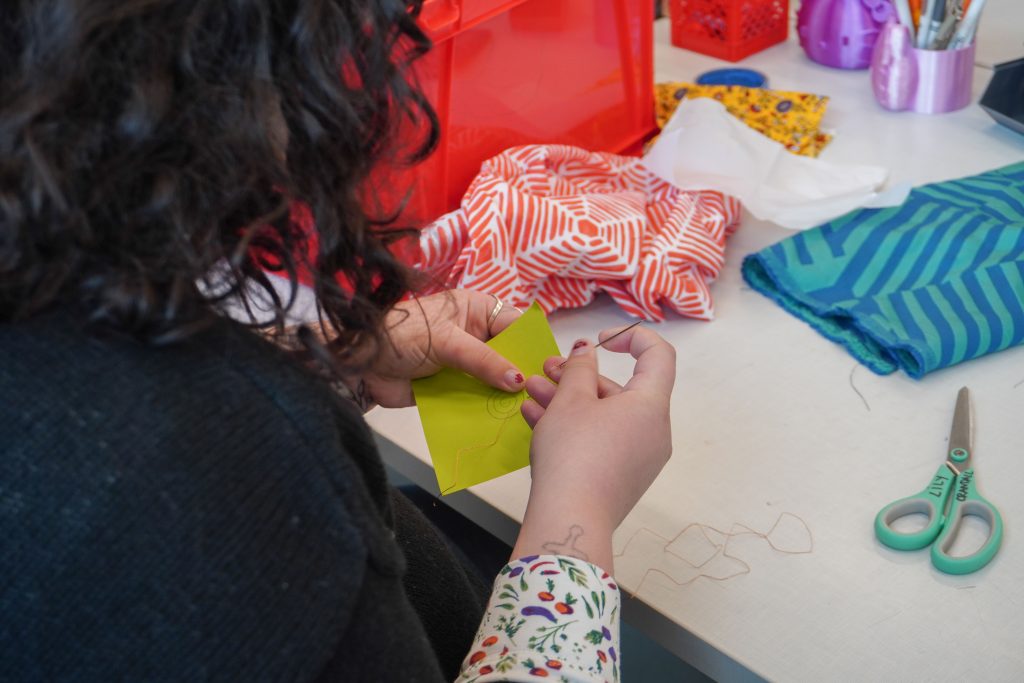
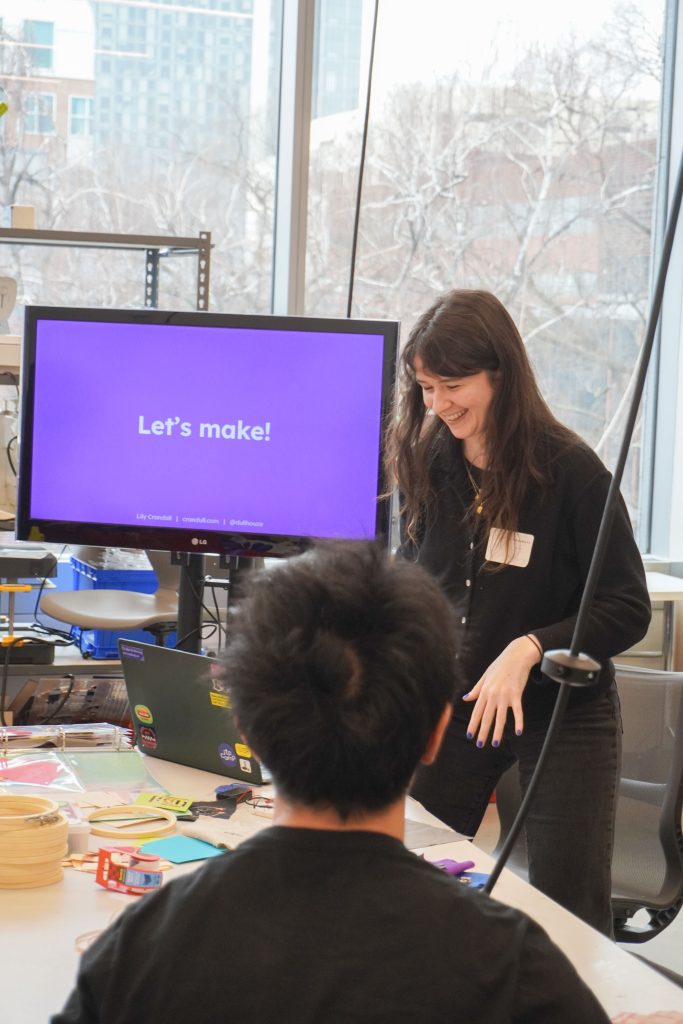
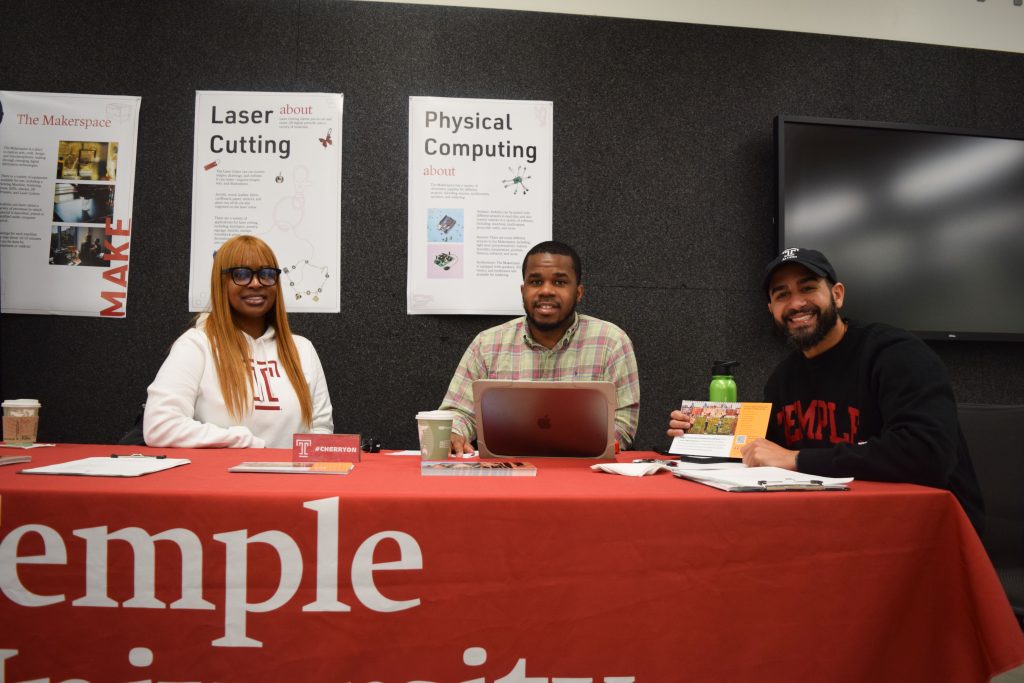
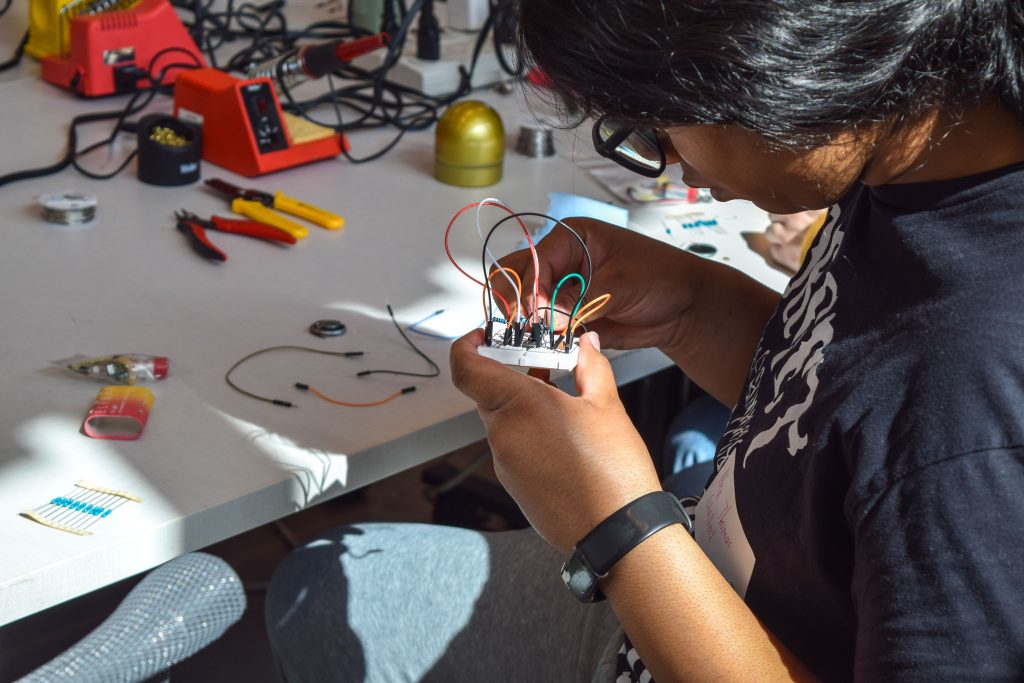
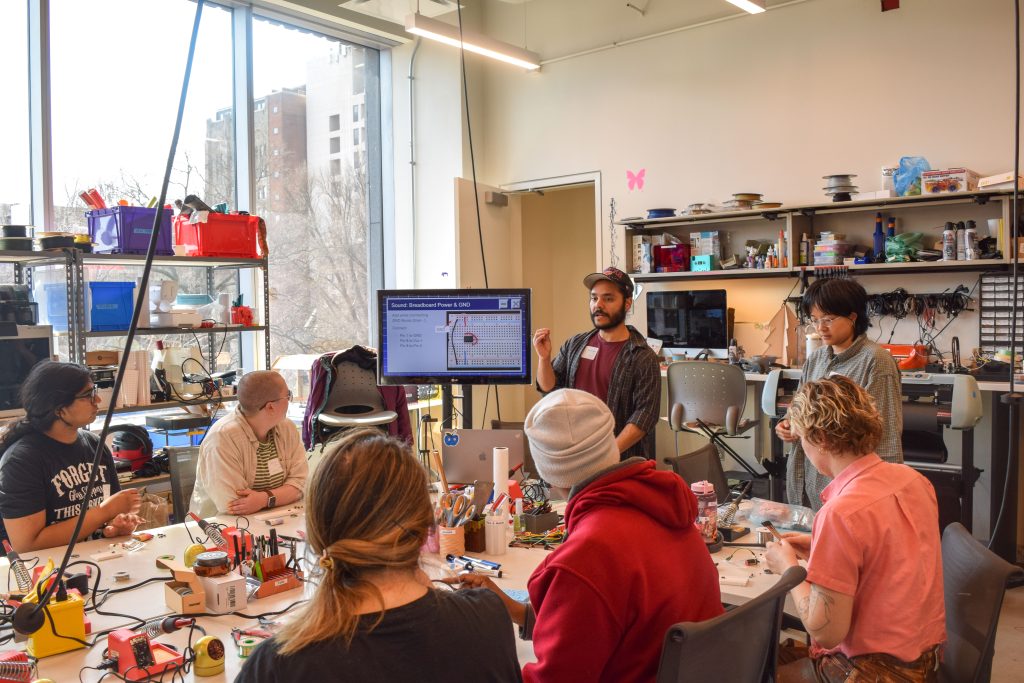
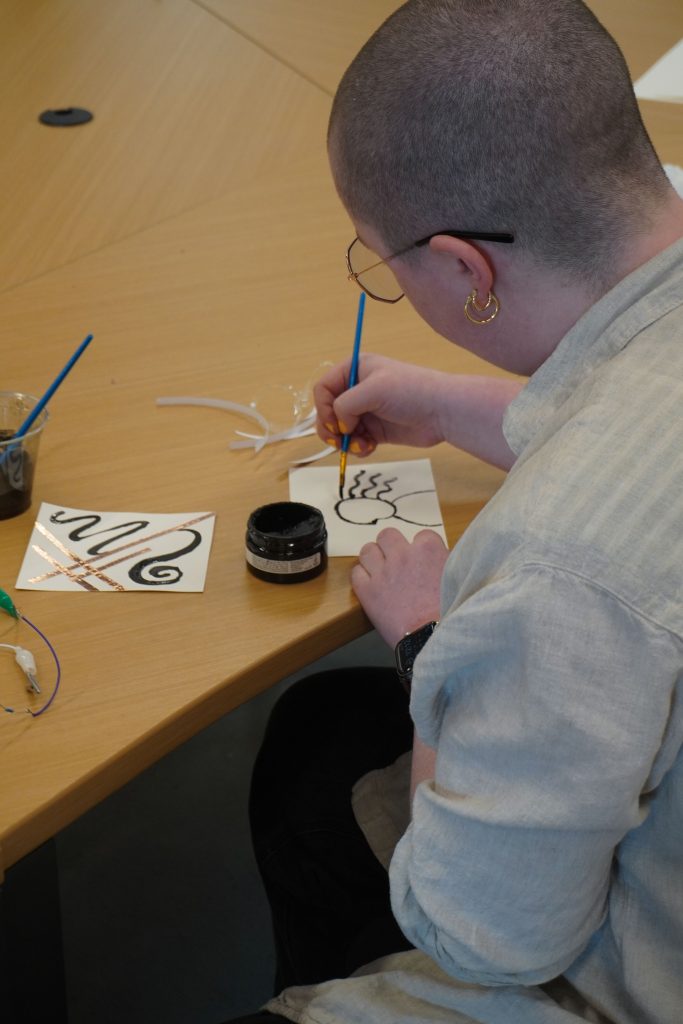
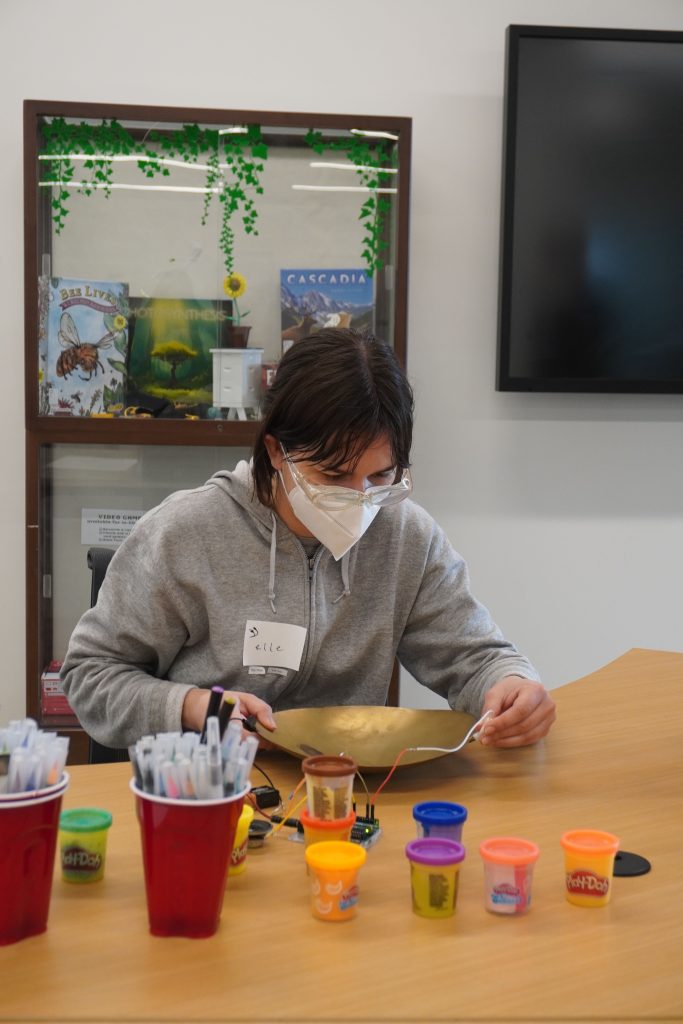
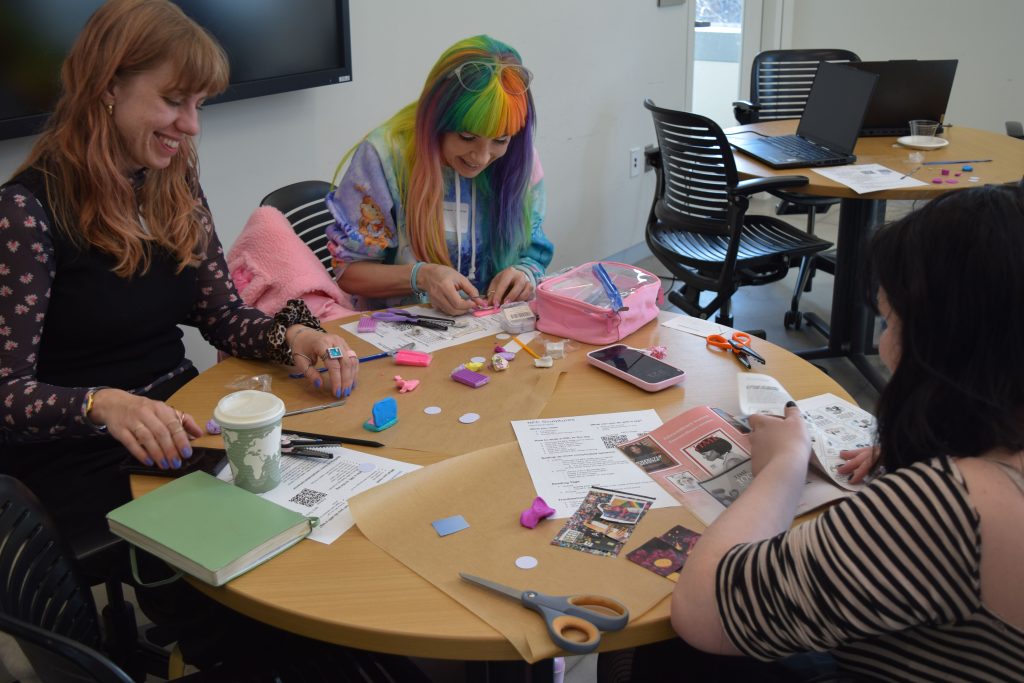
Low Tech Exhibition at Huddle, Co-curated by Ollie Goss and Hannah Tardie.
There’s tension in the premise of a Low Tech exhibition. By name low tech inverts the value system commonly ascribed to technology away from production method, service, and commodity towards something else. This inversion can be a framework, a feeling, a number, and all else that exists in the shared fantasy in which technology is no longer tethered to structural violence. This fantasy is ambivalent to technological advancement; it sutures time by recovering that which was lost, forgotten, and left behind by positioning them as something relevant.Low Tech is not a consequence but rather a point of inquiry.
The exhibition assembles work from fourteen artists working in a variety of media. Many works are made from recovered materials, such as wood thrown away during industrial elevator construction, unaccounted data from modern image processing, image transfer negatives, and the electronics inside of a broken insulin pump. Others display a panoply of technological methods and outcomes such as antique electronic phones, handmade electronic instruments, bone conduction, hand-altered film for motion pictures, and low powered devices. The curation of pieces in the show is an offering to indulge in the tension held by Low Tech and maybe even join in our fantasy.
Low Tech Exhibition Participating Artists: Catia Colagioia, Charlie Manion, David Rios, Francesca Lally, Gregory Kramer, Hannah Tardie, Jamison Mead, Jazmyn Crosby, Kelly Chen + Caleb Chase, Logan Crompton, Maddie Brucker, Noah Kernis, Ollie Goss, and Rachael Henson.
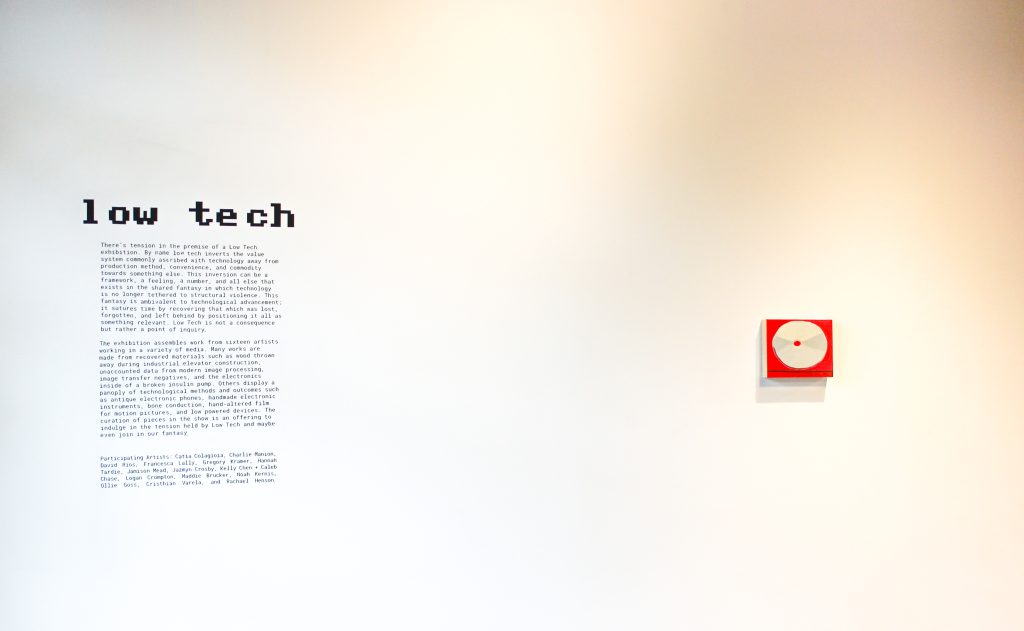
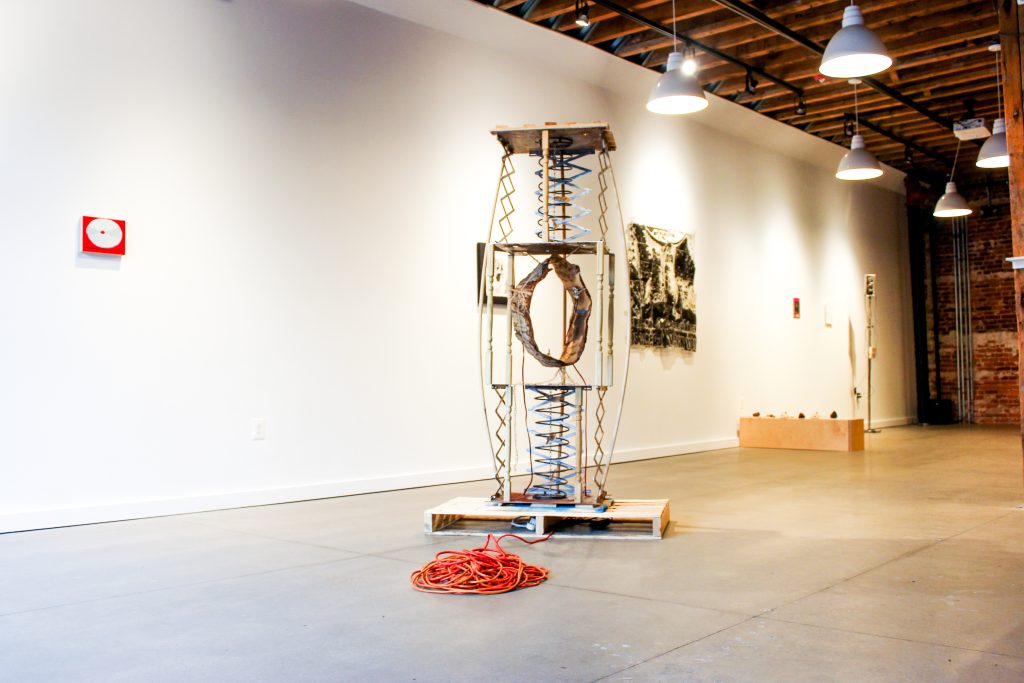
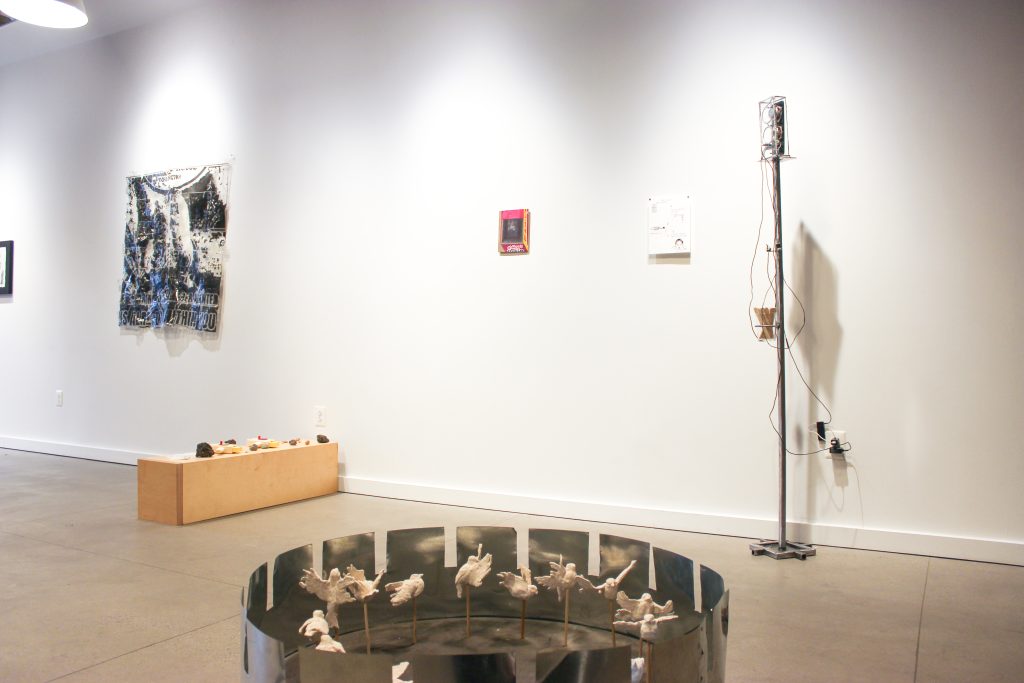
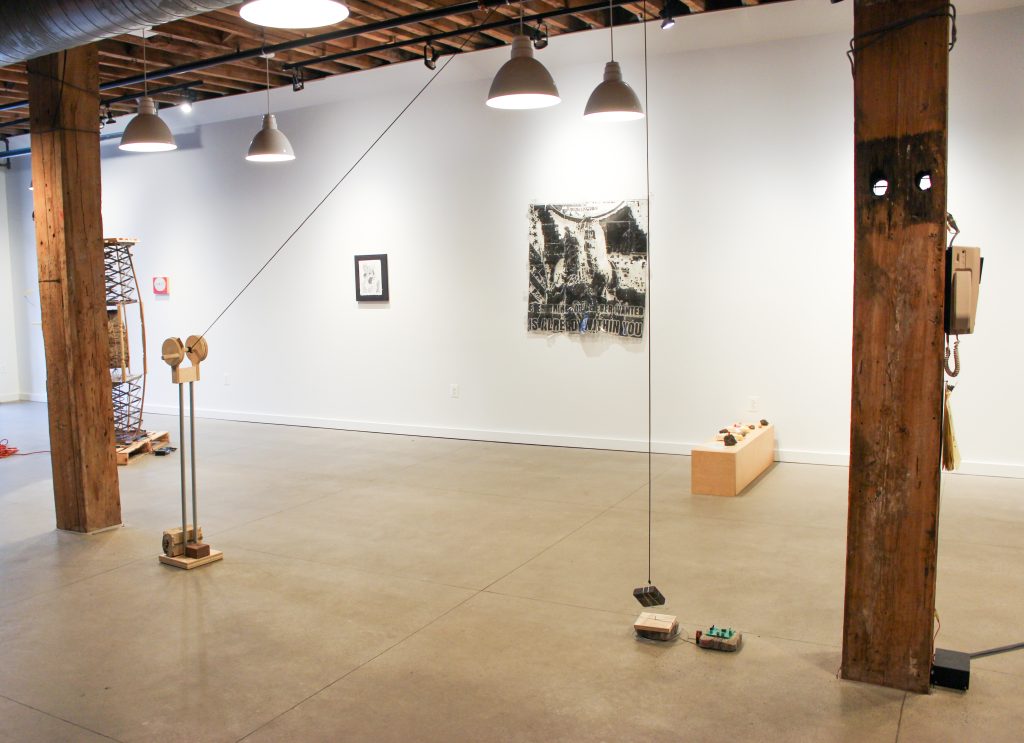
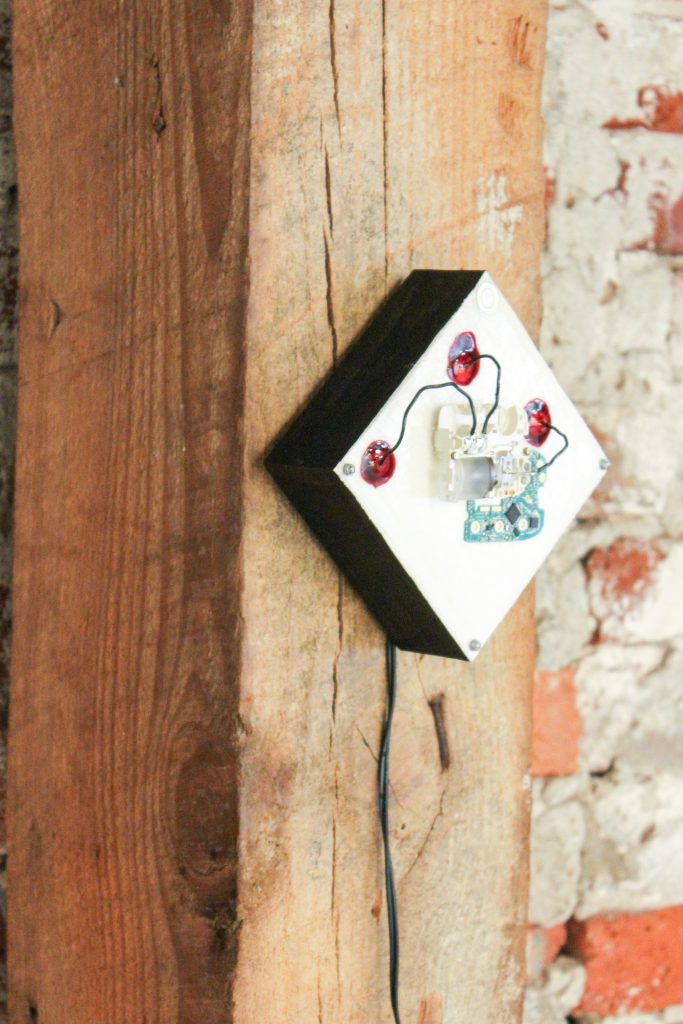
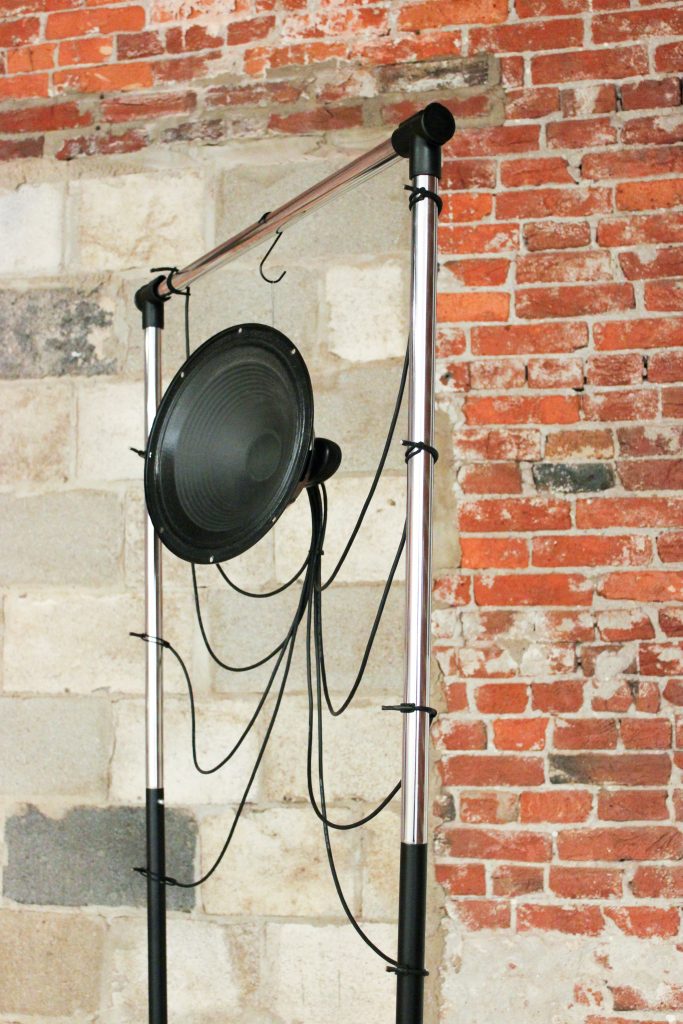
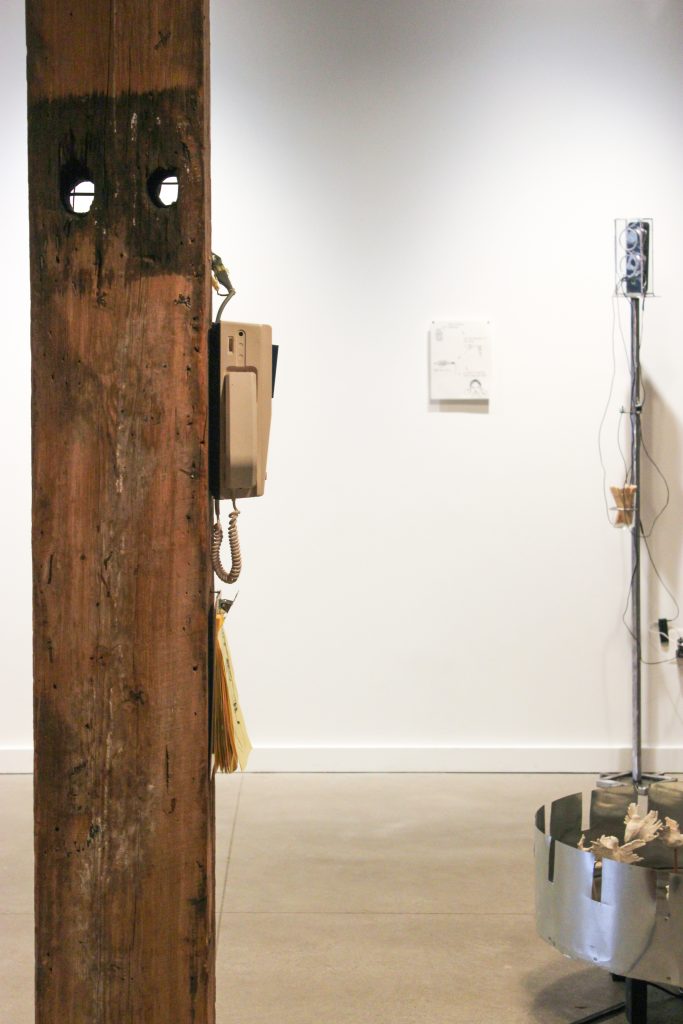
2025 Theme
Low Tech
Low Tech follows the spirit of the low fidelity (lofi), low-tech, minimal computing, handmade, craft, and DIY movements and genres. Low Tech can be a bounded technical designation (adjacent to technical prefixes like smart or super), and/or an abstracted aesthetic practice. Low Tech is not synonymous with analog: there are myriad examples of digital, low-tech networks, protocols, and objects. The prefix “low” can be applied to other technical designations including but not limited to things like low-power electronics and electronics that make use of low-level programming languages. Low Tech might be a process of looking through the history of technology to find something new in that which is old. As a methodology, a low tech essay could examine fundamental logics of circuit design and prototyping, electronic component manufacturing (from the handmade to the industrial), and counting and computation. As a practice, Low Tech could be something like weaving or drawing to explain a low-level programming concept, taking electronics apart, growing crystals at home, making ascii art, circuit bending to make music, breaking electronic parts (on purpose or on accident), salvaging electronic parts, making art with simple machines, powering electronics through something like the sun, winding a lever, or riding a bike. We welcome myriad interpretations and meditations on this theme.
Keynote: Lori Emerson

Lori Emerson is Associate Professor of Media Studies; Director of the Intermedia Arts, Writing, and Performance Program; and Associate Chair of Graduate Studies at the University of Colorado Boulder. She is also Founding Director of the Media Archaeology Lab. Emerson writes about the history of telecommunications networks, the history of computing, media archaeology, materialist media studies, laboratories, and digital humanities. She is currently working on a cluster of research projects she calls “Other Networks” or histories of telecommunications networks that existed before or outside of the Internet. Emerson is author of the forthcoming Other Networks: A Radical Technology Sourcebook (Anthology Editions, 2025), co-author of THE LAB BOOK: Situated Practices in Media Studies (University of Minnesota Press, 2022), author of Reading Writing Interfaces: From the Digital to the Bookbound (University of Minnesota Press, 2014), and editor of numerous collections.
Low-Tech Bibliography and Inspiration:
How To Get What You Want Hannah Perner-Wilson
Out of Power Tower and Postnaturalia Kristof Kintera
Sizzling Semiconductors Ioana Vreme Moser
Tupperware Electronic Instruments ADACHI Tomomi
Drift Mine Satellite Everest Pipkin
Āmantēcayōtl: And When it Disappears, it is Said, the Moon has Died, Fernando Palma Rodríguez
How to Build a Digital Brick Wall Allan Wexler
Solar Server for Video Games Kara Stone
Textile Instruments Agente Cosura / Lisa Simpson
Lubricate Coil Engine Tabita Rezaire
The New Way Things Work David Macaulay
Code Switch: Distributing Blackness, Reprogramming Internet Art Organized by Legacy Russell
Neo-Luddite Reading Groups
Imaginary Landscape No. 4 John Cage
Queer Connections Faith Holland
Vape Synth David Rios, Kari Love, Shuang Cai, and Becky Stern
How to Do Things with Sensors Jennifer Gabrys
Painting Machines Lolo y Sosaku
Handmade Electronic Music Nicholas Collins
Dark Matter Objects Zine Neta Bomani
Super Mario Clouds Cory Archangel
Low Power Electronics
Case Mod by Janne Schimmel
Uncomputable Ephemera Alex Galloway
Handmade Computers Taeyoon Choi
Bread Symphony Katya Rozanova, Ashley Jane Lewis, and Max Horwich
Circuit Experiments Michelle Temple
Tiny Internet Spencer Chang
Open Garden Alice Yuan Zhang
Minimal Computing and Ontologies Erik Radio
Two Person Operating System Type 2 Martha Friedman and Susan Marshall
Alt-Text as Poetry Finnegan and Bojana
Towards a Folk Computer Cristóbal Sciutto
Materiality and Matter and Stuff: What Electronic Texts Are Made Of Matthew G. Kirschenbaum
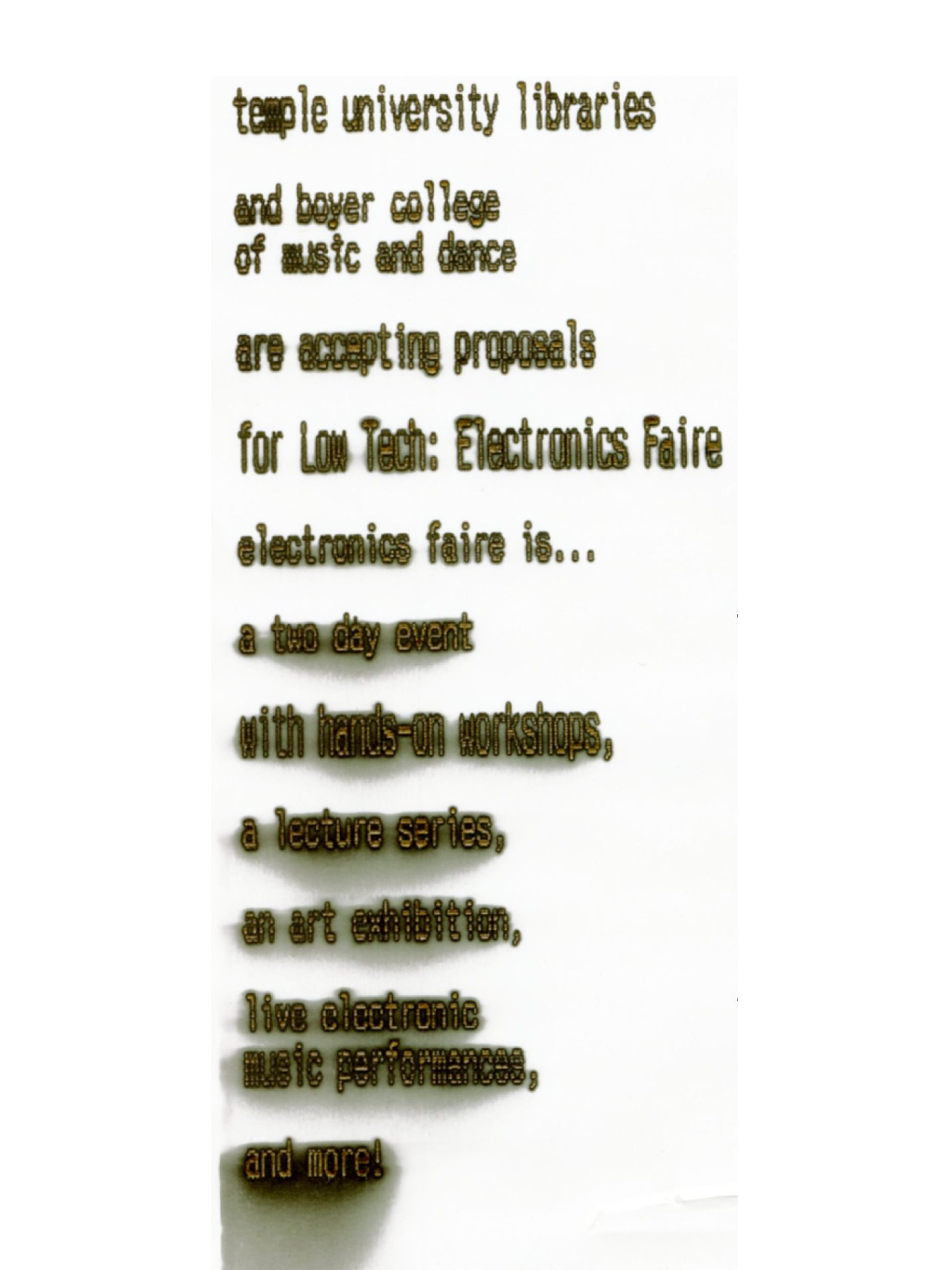
Low Tech 2025 Organizing Members:
Hannah Tardie, Electronics Faire Chair, Makerspace Manager at the Loretta C Duckworth Scholars Studio at Temple University Libraries. Hannah Tardie is an artist, educator, and researcher whose work exists as sculpture, installation, essays, and performance. Tardie views electronics as rich transferential objects through which we can explore intimacy, attachment, and queer relationality. Their work has been shown at La Gaite Lyrique, SPACE Gallery, Westbeth Gallery, One Brooklyn Bridge Park, Arts, Letters, & Numbers, Vox Populi, Pig Iron Theatre Company, and online via websites like Artsy.net, maps-dna-and-spam, and p5.js. Tardie has given artist talks, guest crits, and academic presentations at the University of Pennsylvania, New York University, Arizona State University, Temple University, and Ryerson University (Canada). Tardie was on the organizing committee of the 2021 experimental iteration of the Movement and Computing Conference, lovingly termed Slo Mo Co. They solely organized Temple University’s first Electronics Faire in 2024.
Ollie Goss, Co-Curator of the Low Tech Exhibition, Adjunct Faculty in Sculpture at the Tyler School of Art and Architecture. Ollie Goss is an artist, puppeteer, and performance-maker whose work blends sculptural installations, animated objects, re-tooled electronics and live performance. In 2016, they received the Thomas J. Watson Fellowship which took them to seven countries to research puppetry. Their work has been shown in places like Icebox Project Space, Temple Contemporary, the Wassaic Project, Philadelphia Fringe Festival, Dixon Place and La Mama. They regularly organize performance events around Philadelphia with the goal of people experiencing something different, together.
Sandy James, Co-Curator of the Low-db Performance Series, Senior Systems Administrator and Adjunct Faculty in Music Technology at the Boyer College of Music and Dance. Sandra James oversees computers and technology for labs, smart classrooms, faculty and staff at Boyer College of Music and Dance, and teaches Analog and Modular Sound Synthesis which is part of the required Music Technology curriculum. Sandra enjoys building stand-alone sound circuits and Eurorack modules. A regular performer at Modular On The Spot, she studied Electronic Music with Maurice Wright at Temple University and attended Ircam’s Summer Academy. She studied Latin Percussion at AMLA in Philadelphia, as well as in Cuba and Panama. Sandra earned a Master in Sonic Arts from University of Rome, Tor Vergatta, a B.S. in Computer Science from Temple University, and a Certificate in Painting with a minor in Printmaking from the Pennsylvania Academy of the Fine Arts.
Michelle Temple, Co-Curator of the Low-db Performance Series, Associate Professor of Music Technology at the Boyer College of Music and Dance. Michelle Temple received her PhD at Rensselaer Polytechnic Institute in December 2022, and holds a master’s degree from NYU’s Interactive Telecommunication Program wherein she taught an electronic fabrication course and helped facilitate a circuit production lab. She specializes in producing art and DIY hardware that explores political concepts of agency which question the measurement standards of sound that reinforce binaries in the sonic world. Her audio and visual work strives to bring forward sonically under-represented populations and overlooked forms of communication. Temple is an advocate for the Deaf community and inclusivity in the disciplines of Sound Studies, Experimental Music and Art. Her most recent work, Sonic Spells, takes a deeper look at the materials in electronics which have been wielded to fulfill the inventions of those who dominate our sonic experiences and hopes to inspire a reclaiming of these raw materials by other artists/musicians in order to widen the spectrum of representation in the sonic arts
With support from Temple University Libraries and Huddle215.
Endless gratitude to all of the library staff who help make this event possible, especially Ella Lathan, Saragrace Stefan, John Pyle, Marianne Moll, Stuart Whisnat, Nick Gallego, and all of the Makerspace Student Workers. <3
